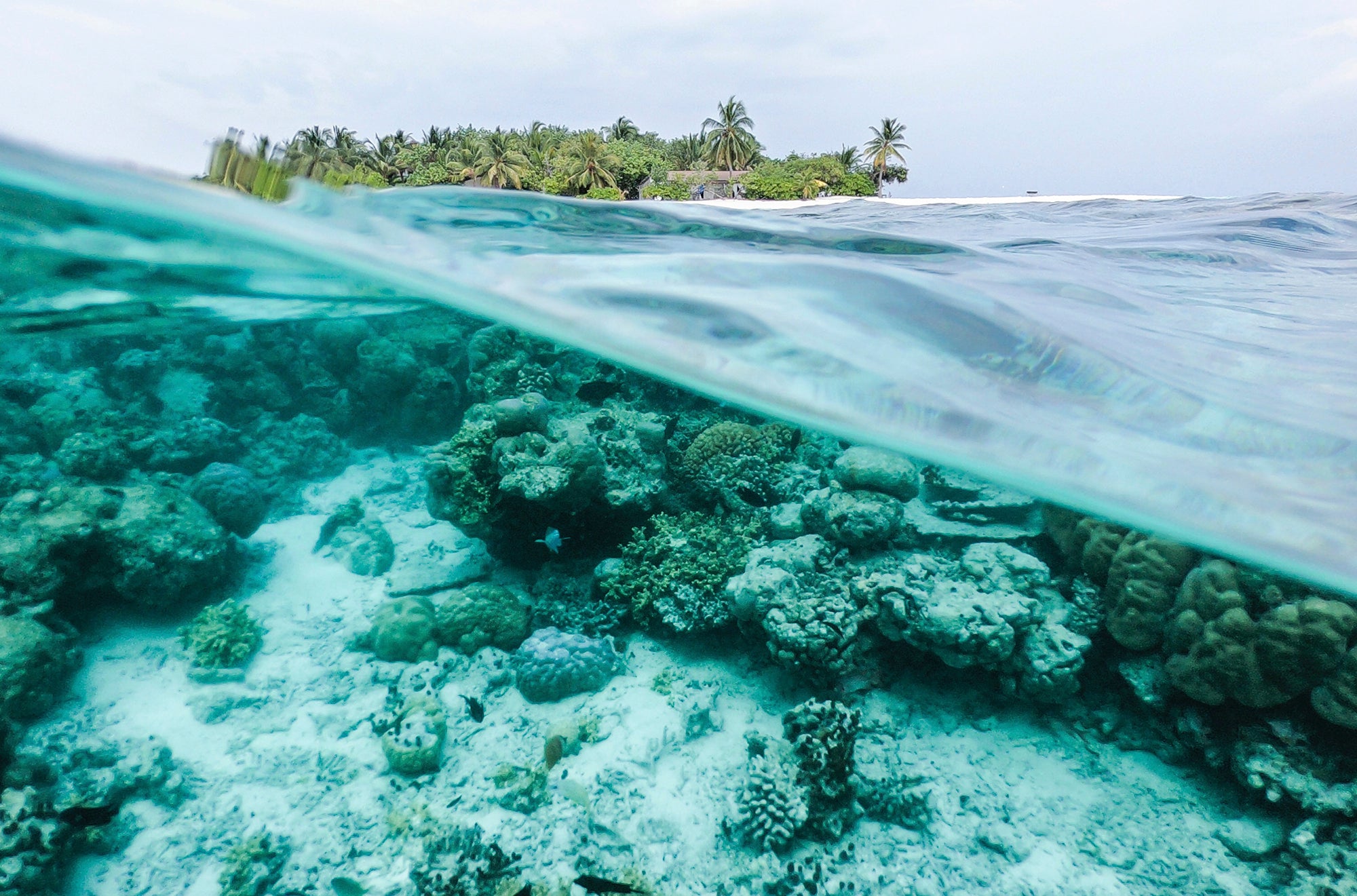Marine wildlife has halved over the last 40 years. A major report has held overfishing, rising sea temperatures, increasing ocean acidity, destruction of habitat, and ocean pollution accountable for this detrimental decline.
WWF’s Living Blue Planet report highlights the scale of the crisis, declaring marine species around the world - including some that are critical to human food security - to be in catastrophic decline.
The eclectic combination of pressures impacting the global ocean ecosystem have created a series of difficulties that effect virtually everything inhabiting the ocean.
Certain marine habitats which many other species depend on, including seagrasses and mangroves have seen significant declines. Simultaneously, entire populations of commercially valuable fish, such as mackerel and tuna, have declined by three quarters since the 1970s.
The scale of this loss is a global issue, and severely unsustainable.

Coral reefs, rich in diversity of life, are threatened with extinction by mid-Century if ocean acidity continues to worsen as a result of rising levels of CO2 in the atmosphere - causing a corresponding rise in carbonic acid in the sea.
“As well as being a source of extraordinary natural beauty and wonder, healthy seas are the bedrock of a functioning global economy,” said Louise Heaps, chief advisor on marine policy at WWF-UK, who helped to compile the report.
“By over-exploiting fisheries, degrading coastal habitats and not addressing global warming, we are sowing the seeds of ecological economic catastrophe,” Dr Heaps said.
The report is one of the most detailed surveys of marine wildlife ever carried out.
It explored a wide range of wildlife, including fish, marine turtles, sea cucumbers, to sea plants such as mangroves and sea grasses. One important discovery detailed in the report showed that the area covered by mangroves dropped 20% between 1980 and 2005, predominantly due to shrimp farming and other forms of aquaculture.
“In the space of a single generation, human activity has severely damaged the ocean by catching fish faster than they can reproduce while also destroying their nurseries. Profound changes a needed to ensure abundant ocean life for future generations,” said Marco Lambertini, director general of WWF International.

The report states 17 species with some of the most dramatic declines, including mackerel, tuna and sardines, fell by 74% between 1970 - 2010, and are showing no signs of recovery.
“We are in a race to catch fish that could end with people starved of a vital food source and an essential economic engine. Overfishing, destruction of marine habitats and climate change have dire consequences for the entire human population, with the poorest communities that rely on the sea getting hit fastest and hardest,” Mr Lambertini said.
“The collapse of ocean ecosystems could trigger serious economic decline and undermine our fight to eradicate poverty and malnutrition,” he said.
Professor Ken Norris, director of science at the ZL, said: “These devastating figures reveal how quickly human beings are changing the wildlife in our oceans and are a stark warning of the problems we might face as a result.”
Depleted species
Mangroves: Currently known to exist in 123 countries, with almost half the coverage in just five nations. Almost 20% of total mangrove area has been lost between 1980 - 2005, predominantly due to human encroachment.
Seagrasses: Vast underwater “meadows” that catch mineral-rich sediments and stabilise the seabed. Coverage has declined by 30% over the past century.
Coral reefs: Some of the most biologically rich and productive habitats on earth. A quarter of all marine species live in or near coral reefs, yet three quarters of them are currently threatened and many could be lost this century if ocean acidity continues to worsen.
Deep-sea habitats: Little is known about the deeper parts of the ocean, but the decline in the number of fish caught in these inaccessible locations over the past 40 years suggests they are also being affected by global changes to the sea.


Share:
Sir David Attenborough on Plastic Pollution
The National Skateboarding Championships Is Back!